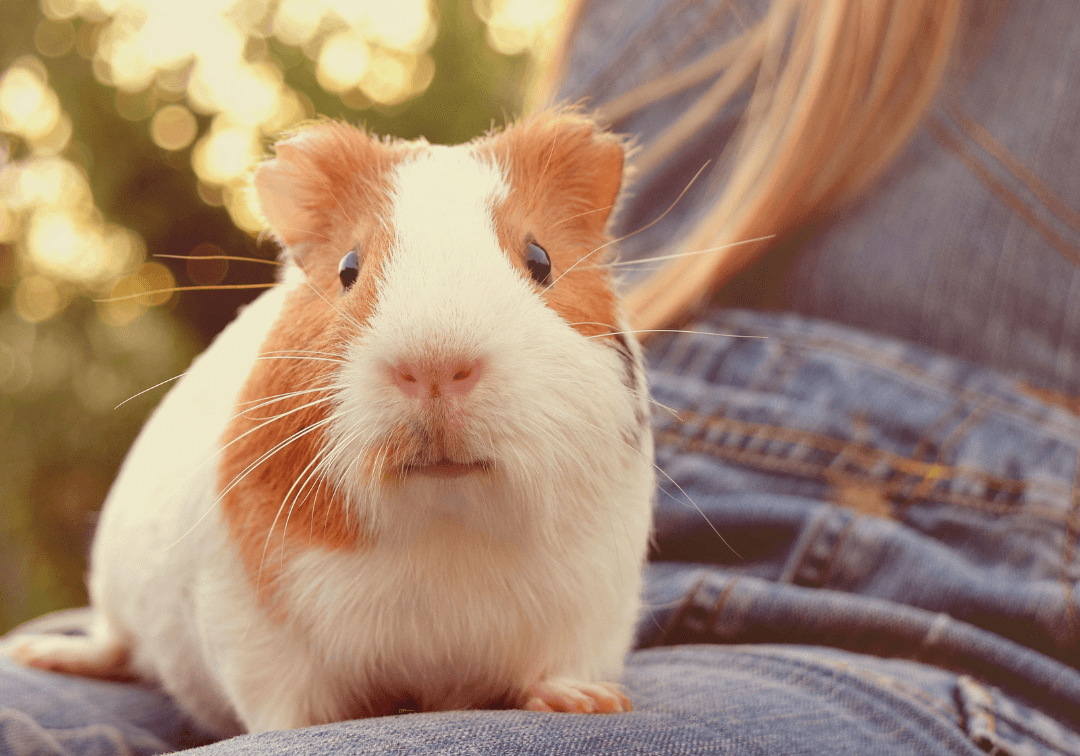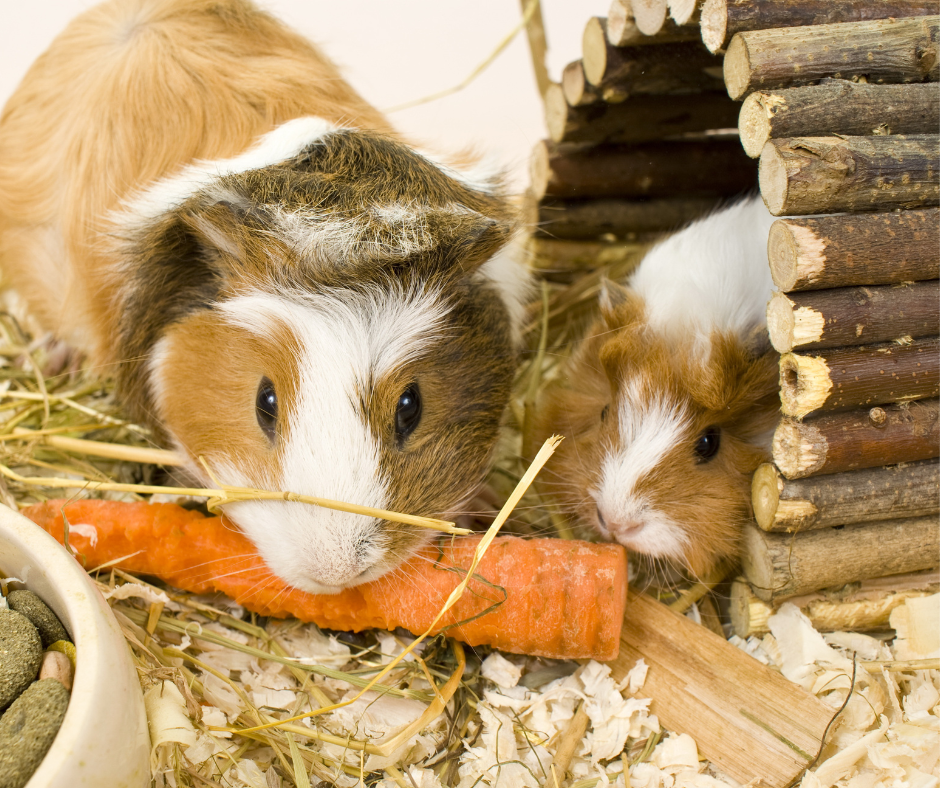
Five Things to Consider Before Adopting Guinea Pigs

Tan and white guinea pig sitting on a woman's lap.
As someone who adopted her very first pair of piggies at 15 years old, I know firsthand just how exciting it can be to bring these furry little friends into your home. But before you rush out to adopt guinea pigs of your own, there are a few important things you should consider first. Let's take a look at the five most important things to consider before adopting.
1. Time Commitment
Guinea pigs are semi-high-maintenance pets that require daily interaction and care. The pet store employees who tell you they are great starter pets likely have never owned guinea pigs themselves. Before becoming a piggy parent, make sure you have the time and energy to devote to their needs.
This includes daily feeding and spot cleaning, weekly deep cleaning, grooming every few weeks, and of course, spending quality time with your new little pals.
Another thing to think about- guinea pigs are social creatures that should always be kept in pairs or groups, so you'll need to have the time to care for at least two of them. Two times the piggy means two times the mess!

Gray and white guinea pigs eat dill together.
2. Space
Space is the next thing you need to think about before adopting. Guinea pigs need a lot of space to move around, hang out, and play. For two guinea pigs, a cage should be at least 10.5 square feet, which is roughly equivalent to a 2x4 C&C cage. If you're adopting boys, it's always recommended to go larger than the minimum to avoid any issues with dominance. Boys tend to be a bit more territorial than girls.
Providing an appropriately sized cage is essential because guinea pigs who are housed in a small, cramped living space can show signs of stress, depression, and additional health problems. While some will argue that floor / free-roam time every day makes up for a below-minimum-sized cage, this is simply untrue.
Piggies spend the majority of their day in their cage- it's not fair to keep them in a space where they can't stretch out and play. If you don't have room in your home for a spacious cage, guinea pigs might not be the right choice for you.

Graphic showing cage size reccomendations per number of guinea pigs.
3. Cost
Moving on to cost- adopting a guinea pig and purchasing their cage is just the beginning of the financial commitment. On average, guinea pigs live between 5-8 years. You'll need to budget for ongoing expenses such as fresh food, hay, bedding, chews, toys, and veterinary care throughout their entire life. Although piggies are small pets, caring for them is not cheap.
It's a good idea to build up savings for your piggies' medical emergencies too. Because guinea pigs are considered "exotic pets", veterinary bills can be quite high. Moral of the story: before adopting guinea pigs, make sure you have the financial resources to provide for their needs. Rehoming pigs because you can't afford to care for them is a heartbreaking decision for all involved.
Don't let this scare you though! There are tons of things you can do to help keep the costs down. From DIY-ing toys and huts to saving pet shop coupons, you can still be an amazing pig parent on a budget. Just be sure you take the time to think your finances through!

Two guinea pigs eating a carrot inside of their cage.
4. Other Pets
Next up, considering your other pets is so important, yet often overlooked. If you have other pets in your home, it's important to think about how they will interact with your new guinea pigs. While there is an abundance of TikTok and youtube videos of cats and dogs playing or cuddling with guinea pigs, I cannot stress enough how important it is to never try this at home.
The truth is that many families have had tragedies happen when having both predator and prey animals in the home. If you already own a cat or dog, make sure that you will be able to safely keep your guinea pigs separated from them. One idea might be building your C&C cage with a lid on it!
If you currently own another pet with a strong prey drive (chasing or trying to attack rabbits, squirrels, mice, etc.), you might not be able to keep your guinea pigs safe in your home and adoption should be reconsidered. It is possible to have multiple species of animals in one house, but making sure everyone is separated and secure should always be your top priority.

Rust colored dog looking at and laying next to a black cat.
5. Caregivers
Last but not least, you'll need to consider who's going to be the guinea pigs' main caregiver. It's not uncommon for parents to adopt piggies for their children and get stuck doing all the work when their child loses interest or forgets to do the daily feedings and routine cleaning.
If you are thinking about adopting guinea pigs for anyone other than yourself, make sure you have a serious conversation with that person about their responsibility to care for the piggies properly.
I also like to encourage parents to think about their role in keeping their child's guinea pig safe and healthy before adoption. If someone under 16 is going to be the caregiver, as the adult you will be responsible for driving to the vet and pet store when necessary. If you are not willing to help with the aspects of care that your child cannot do, it might be better to consider a different pet.

Little girl in striped rainbow shirt holding white and tan guinea pig.
Final Thoughts
Choosing to adopt a new fuzzy friend is a big deal and not one to be taken lightly! If you're still on the fence, trying to decide if piggies are the right pet for you, do some more research on them until the decision becomes clear. The more you can learn about guinea pigs before adoption the better prepared you will be to give them the best home ever!
Disclosure: This blog post contains paid links, however, I only recommend products that I would use for my own fuzzy family. As an Amazon Associate, I earn a small commission from qualifying purchases, at no additional cost to you.

